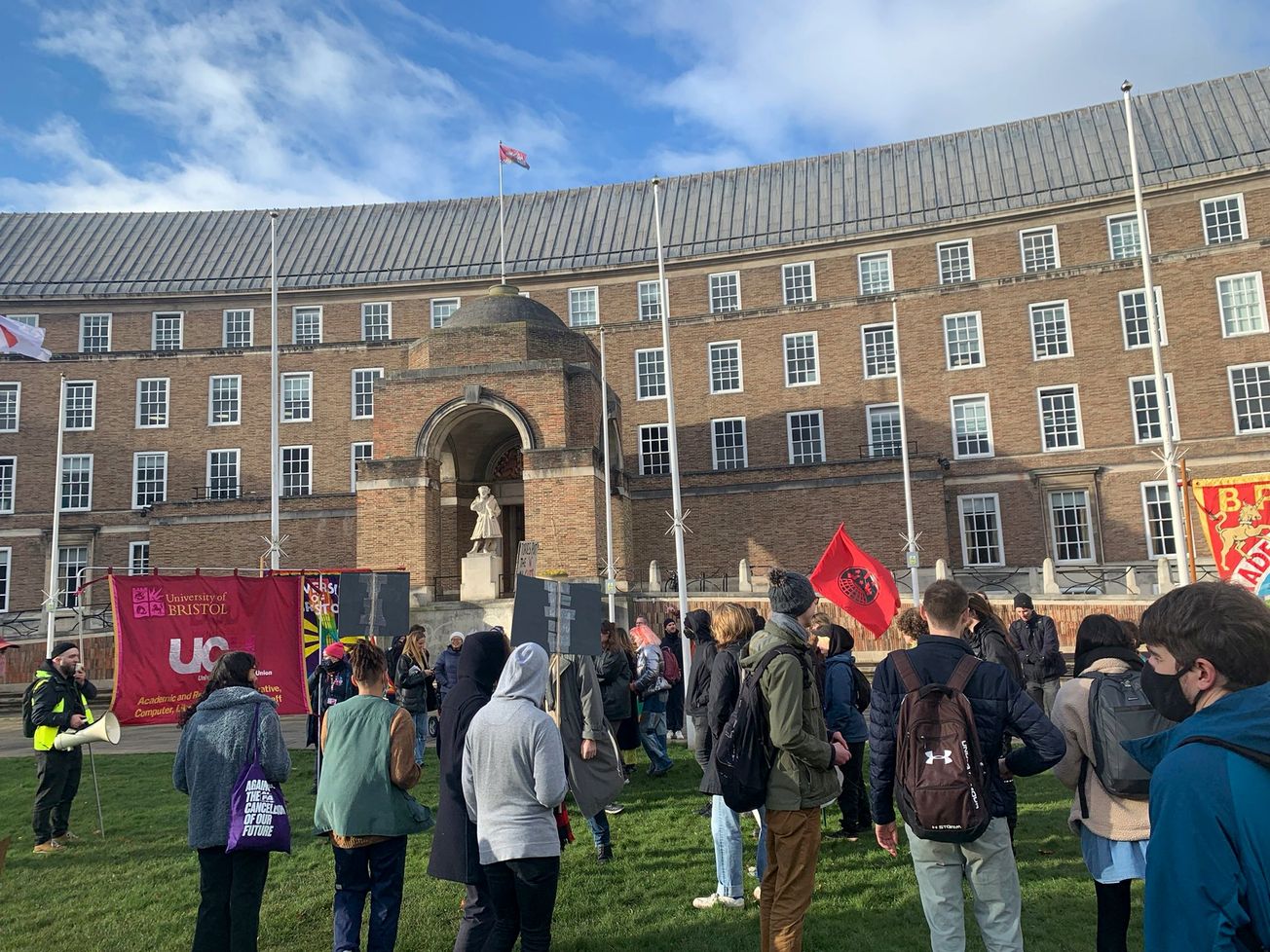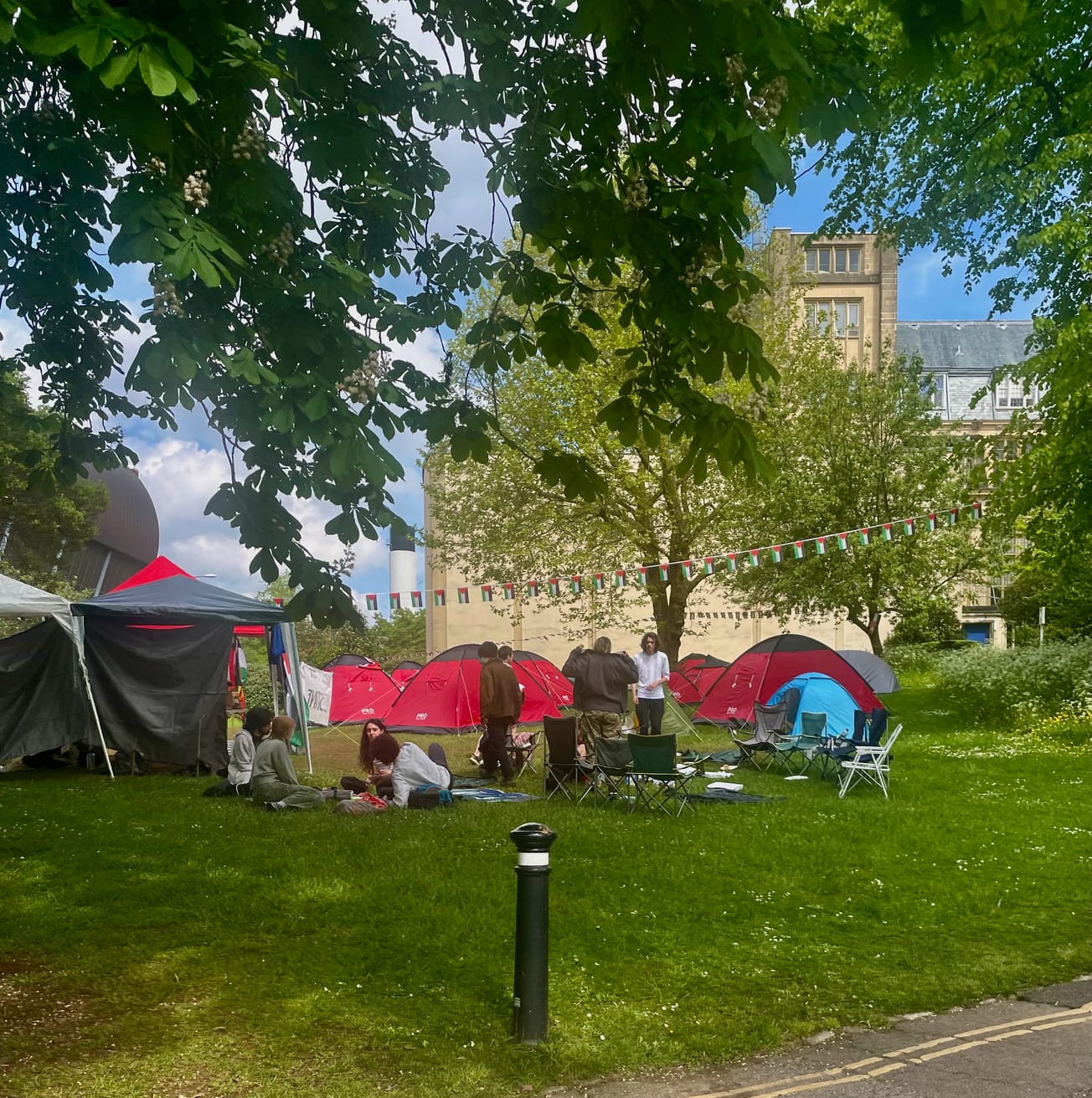By Mark Ross, Opinion Editor
This month, university staff across the country took industrial action to protest against pension cuts and work casualisation, amongst other issues. As yet another chunk of students’ uni experience was upended, should we be demanding financial compensation from the University this Christmas?
Following the SU’s commitment to ‘work with the University on the topic of fee rebates for those who have had their educational experience negatively impacted by industrial action’, could more be done?
As much as these strikes have inconvenienced us, the University will most likely do ‘enough’ to be able to avoid paying-out. But even if they don’t pay us, they should at least pretend to empathise with our misfortune.
Students were undoubtedly affected by these strikes. Lecturers and seminars were cancelled, submitted work took longer to mark and responses to important queries were frustratingly delayed.
Surely we should be compensated for these inconveniences? After all, we are not receiving the education that we are paying for.
Unfortunately, this is not the case. What we think the University owes us, and the minimum action it can legally take, are two entirely different things.

According the Office for Students, the independent regulator of higher education in England, universities must ‘continue to offer the service they have promised to students, even during periods of industrial action’.
Or, as the Office for the Independent Adjudicator put it, ‘You might not be entitled to a financial remedy if the provider is able to take steps to put things right another way’. Their website gives examples of what this ambiguous phrase means.
Universities must make up for lost teaching in other ways, for example, through extra classes later in the year, or offering the content virtually following the strikes. This must be enough to teach the ‘learning outcomes’ that we paid to learn.
They must also must ensure that students are not disadvantaged during assessments by adapting their deadlines and implementing appeals and mitigating circumstances processes.
As well as this, they are obligated to ensure that all students are impacted equally. Those from certain socio-economic backgrounds, for example, should not be disadvantaged by industrial action more than other students.
If the University complies with these criteria, the only money I will be receiving this Christmas will be from Grandma Stella.
Universities must make up for lost teaching.
Whether or not the University provides these services is still in discussion. It seems, however, that they will manage to do the bare minimum to avoid any liability.
After eighteen months of recorded lectures and online tutorials, the University is well-prepared to offer alternatives to the disrupted in-person classes. They also have a track record of offering mitigating circumstances, ‘safety nets’ and delayed deadlines, such as those offered during the last round of industrial action and during the pandemic.
They also offer a ‘Student Expenses Fund’ to compensate those who have lost a disproportionate amount of money due to the strikes.
All of which will leave us feeling a bit bitter. We’ve ended up with a disrupted education with little chance of compensation.
Which is why Bristol, if only to claw its way up the student satisfaction rankings, should offer us something – anything – in return. A graduation in an actual university building, after lengthy protest, signposts a good start.
But it's not all doom and gloom. There will be cases in which the University does not satisfy the above criteria. For example, when learning outcomes are not satisfied, or students were not given enough notice of disruption.
Day 1 of the UCU Strike: a roundup of the events in Bristol
An anonymous Master’s student in 2019 was awarded £340 as he/she had already left the University when catch-up lessons were offered.
A group of business students complained to the regulator and managed to settle with their university/college for £2000.
This shows that if you really have been disadvantaged by strikes – not just because you don’t get to pick up a free Pret on the way to campus – then it is worth appealing.
Bristol UCU members making their way down to College Green #UCUstrikes pic.twitter.com/ln6A168g36
— Epigram (@EpigramPaper) December 1, 2021
But I suspect that for the majority of us, the University will tick the required boxes when it comes to providing adequate compensation.
Let’s hope they have the decency to at least pretend that they feel any shred of remorse about their students having had to spend yet another week in blackboard break-out rooms and berated for crossing picket lines into study spaces they pay thousands of pounds for every year.
Featured Image: Epigram | Flossie Palmer
What was your experience with industrial action? What are your thoughts on this article? Let us know @EpigramOpinion on Twitter or Epigram on Facebook or Instagram.
Want to write an opinion article? Sign up today.









